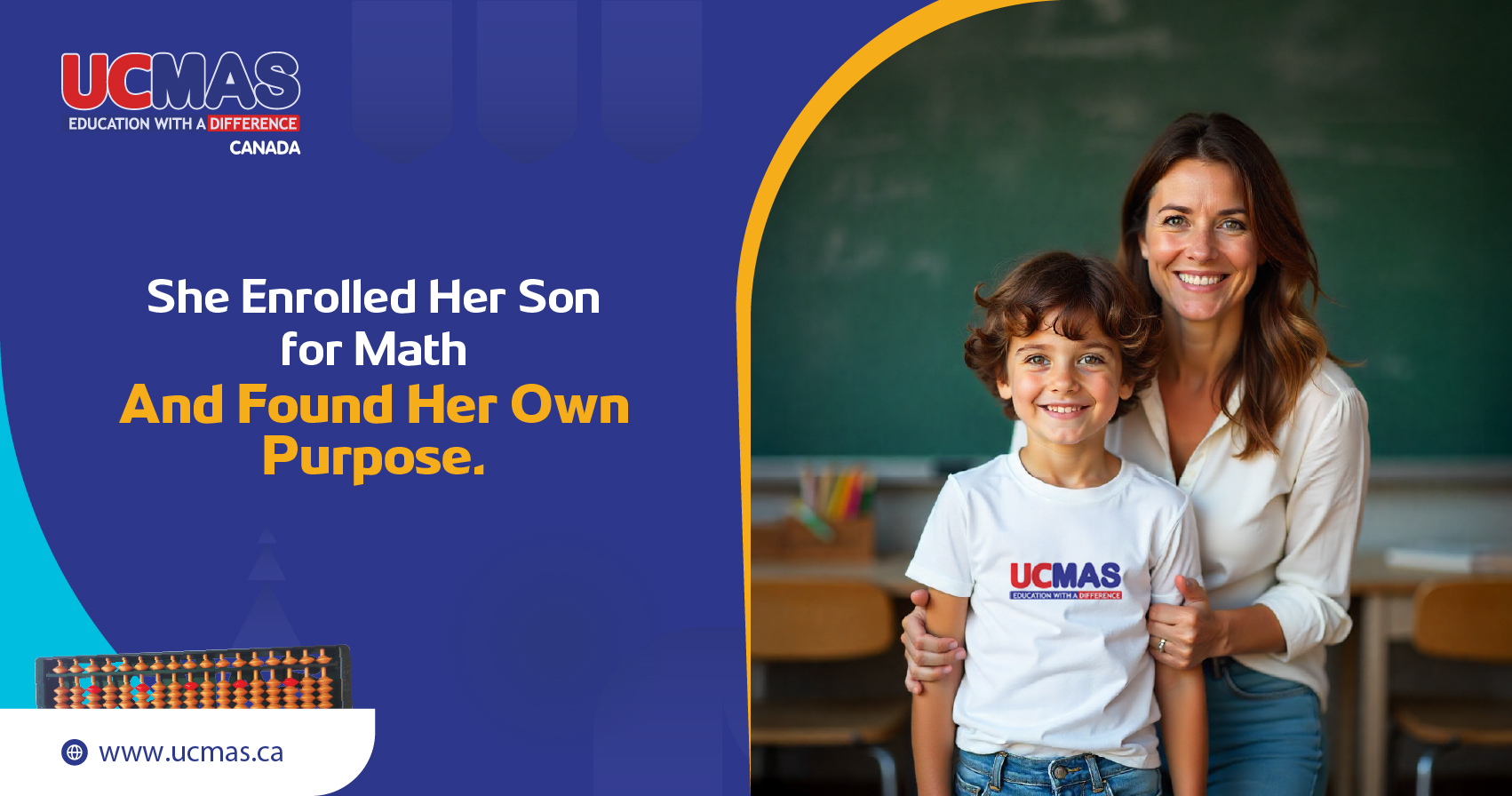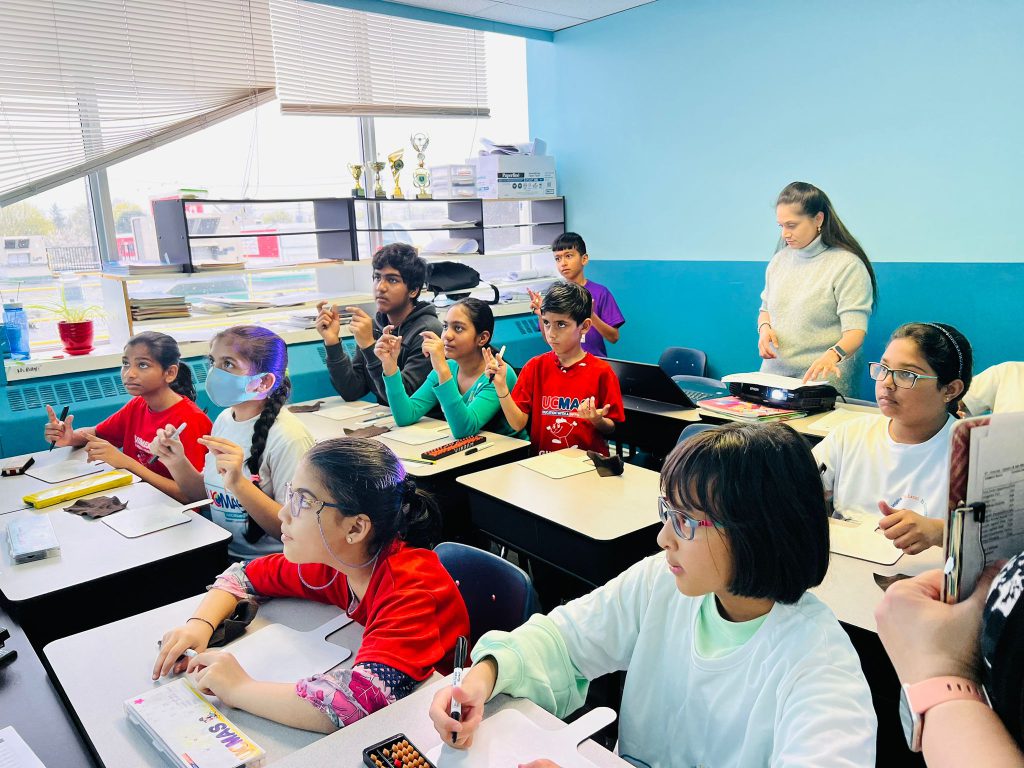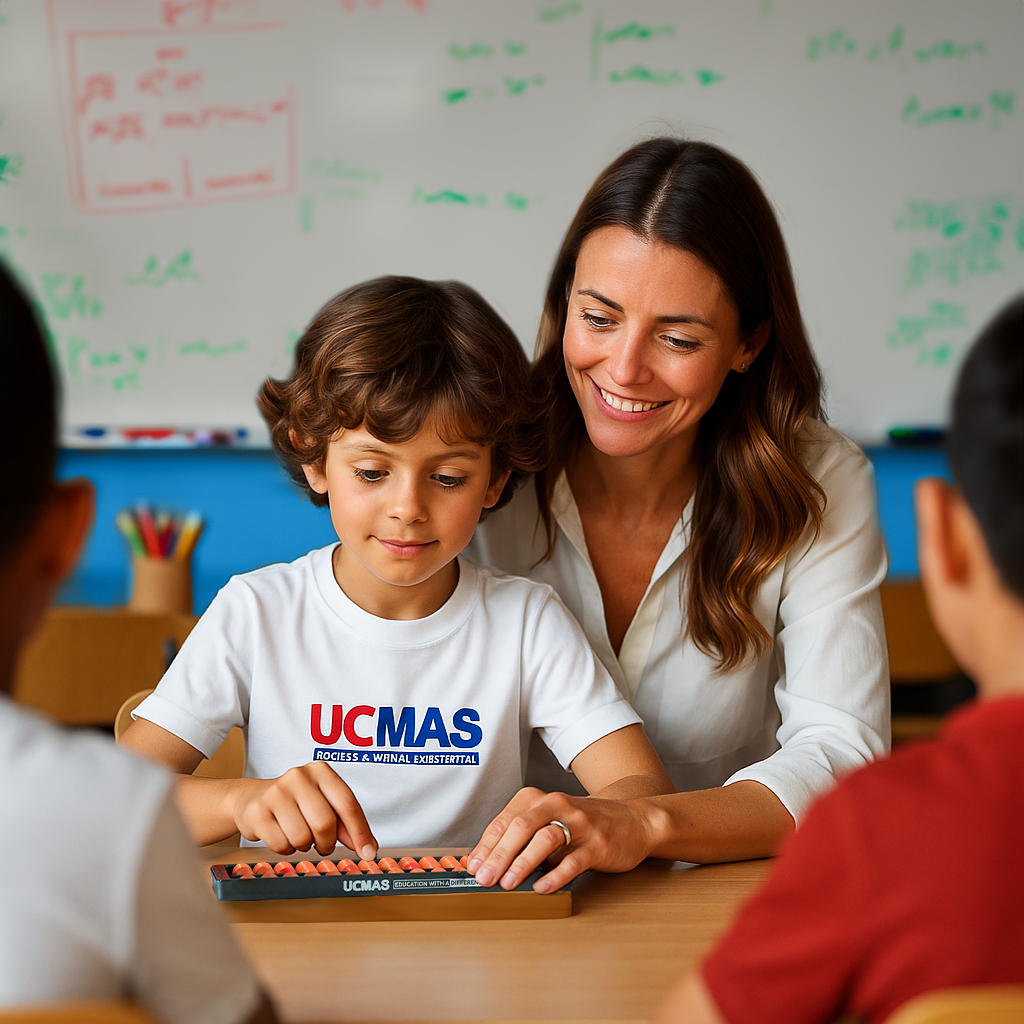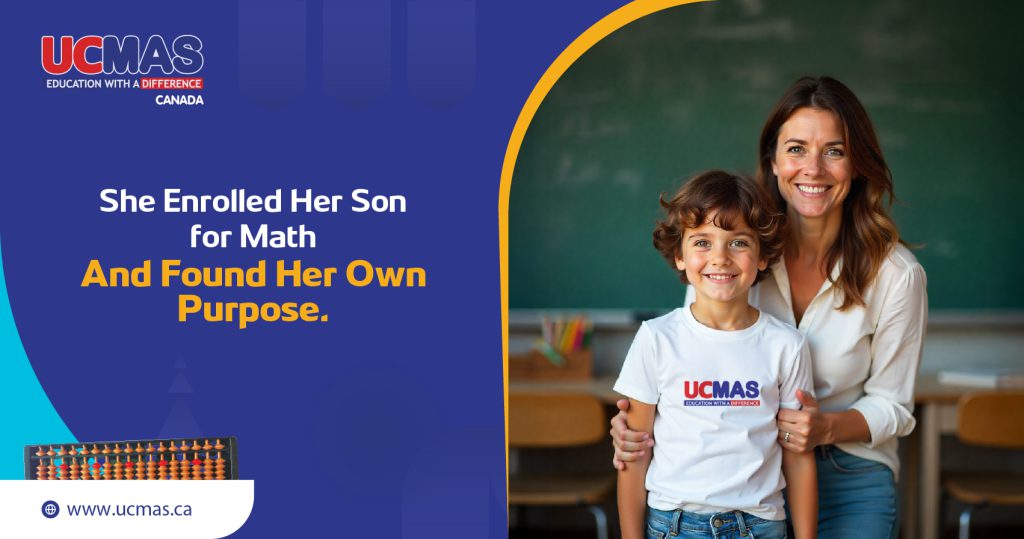
It all began on a Tuesday night – the kind that ends in tears over a simple math worksheet. My 7‑year‑old son sat across from me at the kitchen table, tense and frustrated, struggling with a math subtraction of
153 – 27
458 – 29
He tried lining up the digits. Counted on his fingers. Crossed-out numbers.
“Why is this so confusing?” he whispered, eyes welling up.
His stress awakened something in me, a familiar knot twisting inside my own memory. I remembered being that child, panicking at the sight of numbers, anxious that every mistake would seal my failure. I held back a sigh. I promised myself I would find a better way.
I’m Sarah, a mother of one, and a proud UCMAS parent & Course Instructor, and this is my journey of helping my son, Liam, feel more confident with numbers. But that night, sitting across from him, I felt something shift.
A few days later, I stumbled on a post that read:
“What if your child could solve math problems confidently – without the tears?”
It was about a program called UCMAS Abacus.
Curious, I clicked and scrolled through photos of children moving beads, looking calm, engaged, and joyful.
I was skeptical—an ancient tool? Was it just a gimmick? But curiosity nudged me. Could abacus math really help?

A Decision That Wasn’t Just for My Child
A few days later, my son and I stepped into a bright, welcoming abacus learning centre. Kids aged 5–12 were flicking beads with speed and accuracy I had rarely seen in school. They weren’t just solving math; they were visualizing it. It was mesmerizing.
“I want to try,” my son said, and I nodded. I signed him up for UCMAS abacus classes, hoping to help him with this math hurdle. But sitting in that first class, watching them add 2‑digit numbers in seconds, something shifted in me. I felt a spark of fascination.
And then something unexpected happened—I asked about the course instructor training. The centre director smiled and suggested attending an introductory training session.
Rediscovering Myself Through an Ancient Tool
The course instructor training was rigorous: technical training, mentoring sessions, classroom hours, and ongoing support. I dove into studying the abacus mental math method. Each bead flick felt like a reconnection with discipline, legacy, and learning.
I also discovered a community. Fellow instructors (many of whom were mothers like me), mentors guiding us, and smiling students, making that centre into more than a classroom. I had stumbled into an ecosystem grounded in focus, empathy, and transformation.
But then the research hit me. I downloaded a long white paper from UCMAS: Harvard–Stanford–UCSD research, showing that consistent abacus training leads to enhanced memory, concentration, spatial reasoning, and even IQ gains in children.
To get a better understanding, I also read UCMAS articles like “How UCMAS also builds soft skills in kids,” which describes how abacus math activates both hemispheres of the brain, helping kids with academic and personal growth.
Through the training, I began to feel it myself. I experienced clarity of thought, memory recall improving, a calm confidence. I was becoming a different version of myself—book-smart, yes, but more importantly, situationally confident, mentally agile, committed.
Eventually, I became a certified UCMAS instructor – earning a modest income, but more than that, I found self-worth and a meaningful purpose.
My Son Changed Too — Just Not in the Way I Expected
After a few months of training, my son’s transformation came quietly but steadily.
The boy who once froze at a math test now skipped into class, eager to don his UCMAS t-shirt and abacus. One evening, over dinner, I tested him: “What’s 1378 + 582?” He closed his eyes, flicked through his mental abacus, and said, “1960!” before I could finish. I blinked. Could he really be solving this in his head?
His teacher later told me he was suddenly volunteering answers, helping other students, even leading study groups. His self-esteem soared. Math was no longer something to fear—it was a source of joy.
And our relationship changed, too. At night, we practiced abacus problems together. We laughed when we both missed the same question; we high-fived over mental math wins. We together explored the abacus mental math glossary and have now found a shared language – beads, numbers, mental images – that deepened our bond.
Suddenly, the abacus mental math program was teaching me more than arithmetic. It was about teaching my child, a connection to the community, and to myself.

The Science Behind the Magic
Here’s what the research says:
- A multi-year study of abacus-trained kids showed some clear benefits of studying math. These children had improved working memory, better visuospatial reasoning, and attention spans compared to other non-trained kids.
- Mental abacus users rely heavily on visuospatial strategies rather than verbal recall – this cross-wiring builds cognitive flexibility and improves neural systems.
- University-led trials found that after just 20 days of training, adults improved on n-back tests—a measure of working memory—suggesting rapid neural adaptation.
I also heard from other parents: one mother said her daughter’s reading comprehension soared after a year of abacus; another found her son’s test anxiety plummeted.
UCMAS has been building this system for over two decades, and is now operating in more than 80 countries, which is one of the reasons why your child must learn Abacus math at UCMAS. Their unique curriculum combines abacus classes with mental visualization, games, competitions, and periodic assessments, helping children sharpen both their skills and mindset.
It’s not just math. It’s mental training.
From Learner to Leader — Giving Back
About a year into my journey, after completing the UCMAS instructor training and gaining classroom experience, I was offered a part-time position as a tutor at one of the official UCMAS Canada centres. I gladly accepted.
Every week, I worked with students aged 5 to 13 – some who were math-phobic, others who were quietly gifted. I witnessed a personal transformation. Little Sara, who once whispered her answers, now raced through complex sums in competitions. Raj, once terrified of school tests, proudly brought home top marks, crediting his turnaround to abacus training.
That classroom became more than a job – it became a calling. Helping children build confidence, not just in numbers but in themselves, brought a sense of fulfillment I hadn’t expected.
Eventually, when the opportunity arose, I took the leap and became a proud UCMAS franchisee owner. I now run one of the many centres across Canada, part of a growing network dedicated to cognitive excellence through abacus education. And though the title changed, my purpose never did: to help kids believe in their own brilliance.
Looking Back, Moving Forward
Just a few weeks ago, our UCMAS centre held its annual awards ceremony. My son walked across the stage to receive a “Mental Math Excellence” medal, his posture upright, his face beaming. The applause was loud, but the quietest moment came when I was thanked as a UCMAS instructor and franchise owner. I smiled, holding back tears.
This wasn’t the path I imagined when I first Googled “help with math homework.” But here we are – my child thriving, myself empowered, and countless students unlocking their own potential.
I remember asking a fellow UCMAS instructor once: “What makes an abacus different from tutoring?” Her answer stayed with me:
“Tutoring helps fix a problem. Abacus rewires how a child thinks.”
So, to any parent reading this – if you’re caught in the struggle of nightly homework meltdowns or watching your child’s confidence dip with every test score, know this: there is another way.
Step into a UCMAS abacus learning centre. Start with a trial class or simply book an info session with them to learn more about their UCMAS Abacus Math Program.
I came for math help. I found a life-changing path for my son and for me.
If you’re ready to try something deeper, visit your nearest UCMAS Abacus center or sign up for a free trial. Trust me – this simple tool might just spark your family’s next chapter.






